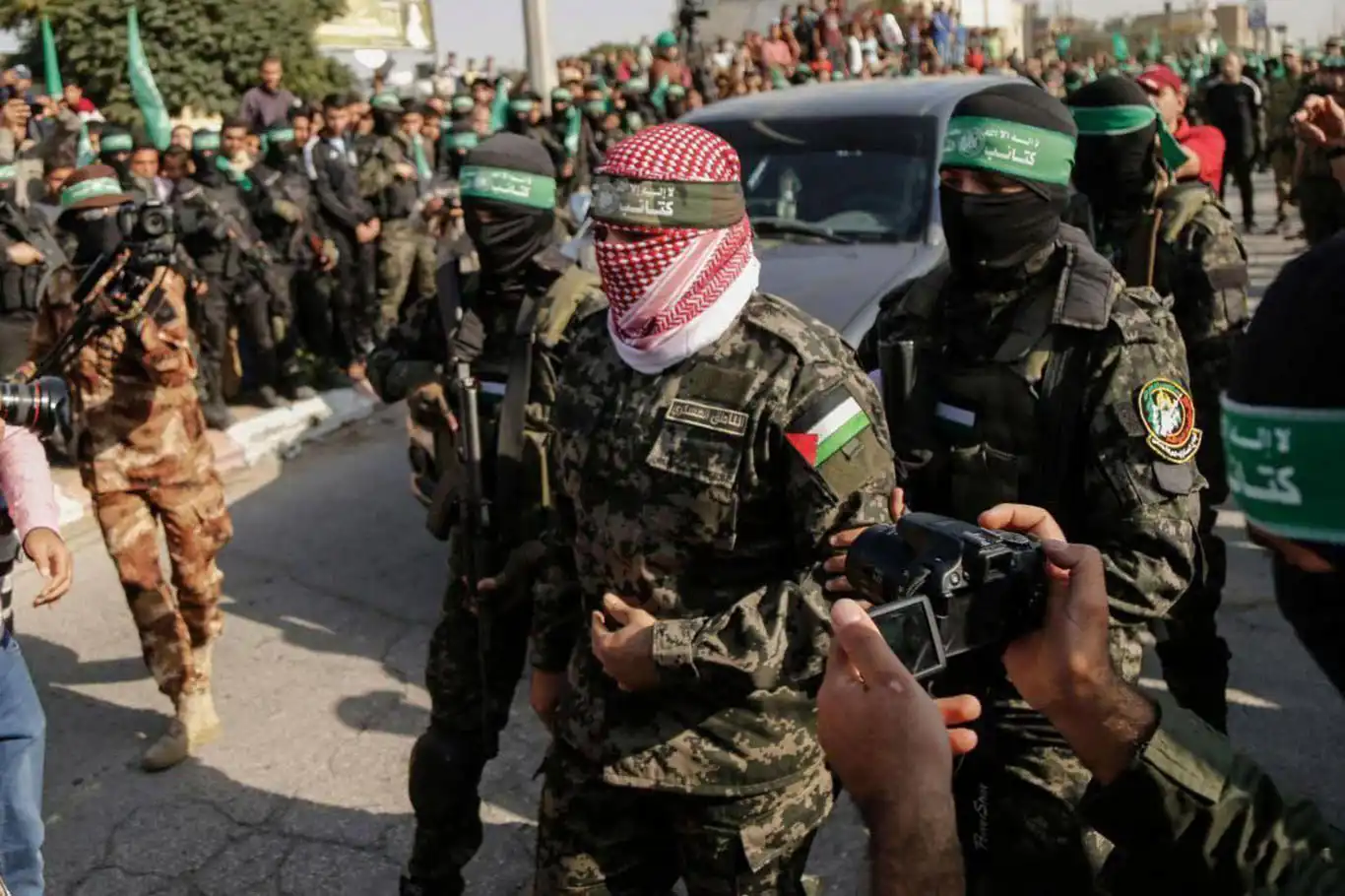Hamas warns against Israeli delays in ceasefire agreement


A ceasefire agreement and prisoner exchange deal between Hamas and Israel, brokered in Doha, remains in limbo as Israeli officials delay its implementation.
The agreement, which aims to secure the release of Palestinian detainees and Israeli captives, was finalized on Thursday but will not be voted on by the Israeli government until Saturday night.
The delay in Israel’s cabinet vote means the ceasefire and the release of the first group of captives will be postponed from Sunday to at least Monday. Despite Prime Minister Benjamin Netanyahu’s confirmation that an agreement has been reached, his government insists on procedural votes and a 24-hour period for public objections, prolonging the suffering of captives and their families.
Families of Israeli captives have expressed outrage over the delay, urging the government to act swiftly. “Every night is a terrifying nightmare... Do not delay their return, not even for one more night,” said a family spokesperson.
Meanwhile, Israeli officials have prepared a list of Palestinian detainees, including those serving life sentences, for the exchange. However, the delays highlight Israel's continued use of procedural barriers to stall progress.
Hamas has condemned Israel’s actions, accusing it of deliberately delaying the ceasefire implementation. Senior Hamas official Sami Abu Zuhri dismissed claims by Netanyahu’s office that Hamas had violated the agreement, calling them baseless attempts to obstruct justice.
"These statements have no basis whatsoever. They represent an Israeli attempt to slow down the implementation of the agreement," Abu Zuhri stated.
Israel has demanded additional conditions be met before approving the deal, a move many view as an attempt to exert further control over the situation.
While the agreement stalls, Israeli airstrikes continue to devastate Gaza. According to the Gaza Health Ministry, at least 72 Palestinians have been killed since the ceasefire deal was announced. The ministry warns that the actual death toll is likely higher, with many victims still buried under rubble.
"Yesterday was a bloody day, and today is bloodier," said Zaher al-Wahedi, head of the Health Ministry’s registration department.
The ongoing strikes have targeted civilian areas, further exacerbating the humanitarian crisis. Families in Gaza continue to face unrelenting violence, food and water shortages, and destruction of homes.
The delays in implementing the ceasefire and prisoner exchange highlight Israel’s disregard for Palestinian lives and its ongoing attempts to undermine international agreements. Despite the deal’s approval by negotiators, Israel’s actions raise concerns about its commitment to peace.
As the situation unfolds, Gaza remains under siege, with its people bearing the brunt of Israel’s aggression. The international community must hold Israel accountable and pressure it to fulfill its obligations under the agreement without further delays. (ILKHA)
LEGAL WARNING: All rights of the published news, photos and videos are reserved by İlke Haber Ajansı Basın Yayın San. Trade A.Ş. Under no circumstances can all or part of the news, photos and videos be used without a written contract or subscription.
Israeli occupation forces demolished two inhabited Palestinian homes in the town of Qatanna, northwest of occupied Jerusalem, early Thursday morning, leaving dozens of residents homeless.
A tragic accident in New South Wales’ central-west region claimed one life on Thursday morning when a truck struck a disused railway bridge, causing the structure to collapse.
Palestinian prisoners’ advocacy groups have reported that the number of Palestinians languishing in Israeli prisons has surpassed 9,250 as of November, amid intensifying crackdowns, mass arrests, and brutal treatment of detainees.
The Nigerian government has strongly rejected the United States’ decision to re-list the country among nations accused of violating religious freedom, calling the move “biased, misleading, and disconnected from Nigeria’s security realities.”